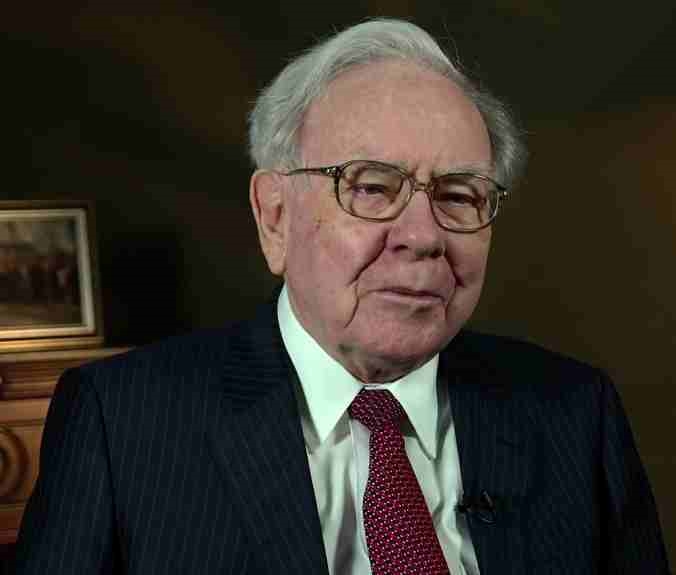
So, you want an angel investor or even a family member or friend to consider investing in your business. To get any investor interested in your business, you have to think like a value investor. A value investor looks to invest in a company that has the potential to provide a good return but is overlooked by mainstream funding sources. A value investor is often an individual that takes a company’s business model more seriously than those around them and can see value where others fail to see it.
The goal of every value investor is to invest in an above-average business that is either offering equity (stock/ownership percentage) at below-average valuations or willing to pay a higher-than-average interest rate to secure debt financing (loan). In other words, the value investor is willing to look beyond financial metrics alone and take on a bit more risk because the business is willing to offer a better return on their investment and has some off-financial statement assets the investor values.
There are two principal elements that, from my perspective, can influence the mindset of the value investor as they consider an investment: quantitative factors such as the overall degree of the return and qualitative factors such as the commitment of the founder(s).
Quantitative Factors
In a recent annual shareholders’ meeting of Berkshire Hathaway, a vice president of insurance operations was asked a hypothetical question: “Would you underwrite a policy to cover Elon Musk’s mission to Mars?” Without much thinking, he said, “That is easy. No.” However, Warren Buffett, the Chairman, chimed in and said: “It would all depend on the premium they were willing to pay.” Warren’s response is a perfect example of a quantitative factor of a value investor’s thinking.
Value investing in the stock market is all about investing in businesses that are undervalued. They believe the market overreacts to good and bad news, resulting in stock price movements that do not correspond to a company’s true long-term value. The overreaction offers an opportunity to value investors to profit by buying stocks at discounted prices.
When it comes to publicly traded stocks, earnings per share, market capitalization, and financial ratios are quantitative factors and are used by most investors to pick stocks.
In a letter to Berkshire Hathaway shareholders, Buffett offered an illustration of how this thinking might be applied:
“If you buy a stock at a sufficiently low price, there will usually be some hiccup in the fortunes of the business that gives you a chance to unload at a decent profit, even though the long-term performance of the business may be terrible. I call this the ‘cigar butt’ approach to investing. A cigar butt found on the street that has only one puff left in it may not offer much of a smoke, but the ‘bargain purchase’ will make that puff all profit.”
In Elon Musk’s mission to Mars underwriting example, the question is: at what point would the premium paid make it worth taking the risk of having to cover potential losses? Warren Buffett essentially was saying that Berkshire should see how high a price Musk and SpaceX would be willing to pay for the coverage. Maybe they’d be willing to overpay.
Over Valuation by Founders
Founders often value their ownership much higher than anyone else since they feel that they have the most risk and therefore should receive the greatest share of the rewards.
We all know the statistics that most new businesses will fail in the first five years. Yet, knowing this, every year millions of people quit their jobs and risk everything to start a business even though statistically the odds are stacked against them. Many are willing to take this risk based on the potential returns, monetary and otherwise.
Value investors have the same feelings about their investment and risks. A value investor knows that the majority of funding sources just simply view the risk of investing in a business as too high. The same, more traditional funding sources fail to define at what reward level the risk might become acceptable. A value investor recognizes that the funding options for many businesses are limited. They also know that there is a good chance that the venture will fail before they get a return on their investment. Therefore, the value investor will demand a sufficiently high return to make the risk worthwhile. Too many founders overvalue their own risk and undervalue the risk of the investor. Too many founders stop short of offering enough equity to an early-stage value investor or are unwilling to pay a high interest rate or provide enough collateral to secure a loan.
Qualitative Factors
In the private sector, quantitative factors are a bit harder to define and a value investor is more inclined to also rely on qualitative factors that are more subjective when defining the overall value of a business.
Some investors may place a higher value on the management team or the product space (qualitative) while others may place a higher value on financial metrics (quantitative). Ultimately, a value investor will use qualitative and quantitative factors in some proportion to determine the true overall value of a company.
In the private sector, a value investor looks past what the run-of-the-mill financier sees and perceives the real potential of a business. Moreover, a value investor recognizes the fact that the business has few other financing options, therefore, making them appear undervalued and overlooked in the financial market.
Many investors will tell you that they invest in the management team over a new product or service idea. Aside from the value of the management team, another element of the value of a business that factors into the thinking of a value investor is the commitment of the founder(s). You may have often heard the term “Skin in the game” which refers to the founder’s level of risk (monetary or otherwise) involved in achieving a successful outcome for the business. That is one way to measure commitment. Too many clients I have met want an investor, be it a lender like a bank or an equity investor, to risk their capital when the founder is not willing to invest a great deal of money, time, or collateral in their own company.
I recall that when I started Horizon Interactive, my second business venture, I knew I had to go all in to attract investors. I got a home equity line of credit (HELOC) and withdrew the entire line to invest in the stock of my new business. Then, I quit my job to show my full commitment to the venture. My other two investors saw my full level of commitment, and like the famous example of Cortes burning his ships to remove all options of retreat, they knew I was 100% committed to the success of the business. As a result, they agreed to invest. I remember saying in my pitch that I had an old cabover camper that was paid off and that if the business failed and I lost my house, my family and I could at least move into the camper as we attempted to rebuild our lives.
Since the risk at that stage; being pre-revenue, was still pretty high, I had to give away 20% of my business for a relatively small investment from my two partners. However, since Dale and Randy, my two other partners saw how committed to the success of Horizon Interactive I was, being all in, it surely helped with their decision to come on board and for each of them to make a ten-thousand-dollar investment in the business.
Warren Buffett framed the element of qualitative factors influencing the true value of a business during the annual shareholders meeting of Berkshire Hathaway when he added:
“I would say that I would probably have a somewhat different rate if Elon was on board or not on board, I mean, you know, it makes a difference that’s called getting skin in the game.”
The comment at the shareholders’ meeting drew laughter, maybe because the shareholders thought Elon Musk was reckless. But Matt Levine, an opinion columnist at Bloomberg said, “maybe SpaceX will be more careful if its chief executive officer is on board, so it should be cheaper to insure.”
The three points you should consider are:
1. A value investor will not simply dismiss an investment based on financial risk alone but will define at what reward level the risk becomes acceptable. Making double on a risky investment may not get a value investor’s attention but offering a five or ten times higher return may.
2. Founders need to consider that the risk level of a value investor is nearly equal to theirs. They should not overvalue their ownership or undervalue the risk and rewards needed for a value investor to invest in their business.
3. A value investor considering investing in a private company will look beyond quantitative factors and give weight to qualitative factors as well. Demonstrating that you have a considerable amount of skin in the game will show that you are 100% committed to the success of the business.
Have you acknowledged the value investor mindset when it comes to funding your startup?
Business & Finance Articles on Business 2 Community
(48)








